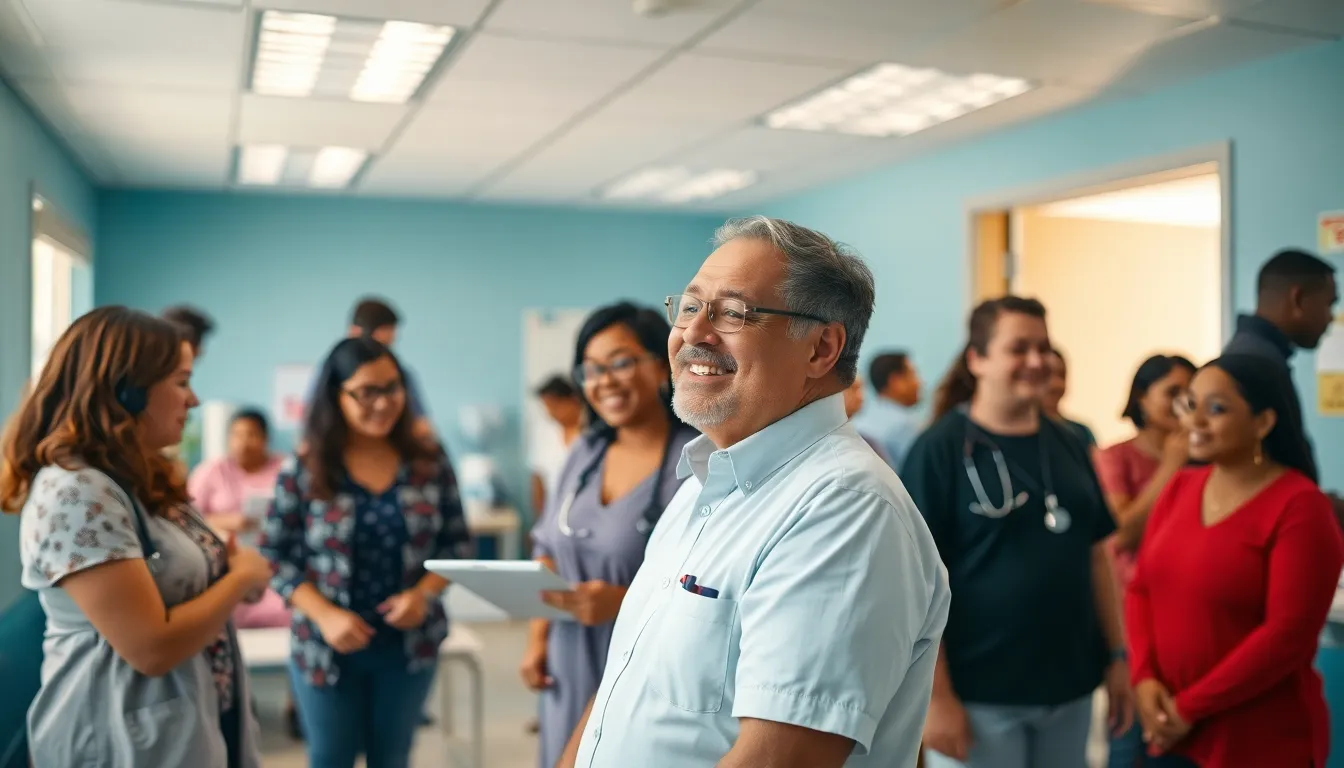Getting a physical done might not be at the top of anyone’s bucket list, but it’s a necessary step to ensure good health. Whether it’s for school, work, or just peace of mind, finding the right place for that all-important check-up can feel like searching for a needle in a haystack. Fear not! There are plenty of options out there, and some might even surprise you.
Table of Contents
ToggleUnderstanding the Importance of Physical Exams
Physical exams play a crucial role in maintaining overall health and well-being. They allow healthcare providers to monitor vital signs and assess any changes in body functions. Regular check-ups help in the early detection of potential health issues, increasing the chances of successful treatment.
Healthcare professionals recommend annual physical exams for individuals of all ages. These exams encompass various screenings, including blood pressure checks and blood work. Each aspect of the exam serves to establish a baseline for an individual’s health status.
Preventive care is another key benefit of physical exams. By engaging in routine assessments, individuals can identify lifestyle changes that promote healthier living. Nutrition advice, exercise recommendations, and stress management techniques often emerge from these evaluations.
Physical exams also provide an opportunity for patients to address health concerns. Patients can discuss symptoms, medical history, and family health issues with their doctors during these visits. Open communication fosters trust between patients and providers, leading to better health outcomes.
Finding a location for a physical exam can feel overwhelming. Options range from primary care offices to clinics and community health centers. Many employers and schools have designated facilities for required physicals, making the process more accessible.
Awareness of the importance of physical exams encourages individuals to prioritize their health. Consistent check-ups contribute to long-term wellness and vitality. Ongoing engagement with healthcare providers can mitigate future health risks.
Where Can I Get a Physical Done?

Finding a location for a physical examination is straightforward, with several reliable options available. Various facilities provide convenient access to regular health check-ups.
Primary Care Physicians
Primary care physicians offer comprehensive physical exams tailored to individual health needs. Many patients feel comfortable with their established relationships, fostering open communication. Appointments with these doctors typically include screenings, vaccinations, and lifestyle assessments. Patients can often schedule visits during business hours, ensuring flexibility. This option serves many individuals, from children to seniors, promoting ongoing health management.
Urgent Care Clinics
Urgent care clinics provide immediate access for those needing physical exams outside normal office hours. These facilities cater to busy schedules, offering walk-in services without prior appointments. Individuals can expect streamlined processes and quicker exam completion times. Many urgent care centers accommodate various types of physicals, including those for sports and school requirements. This option works well for those who prioritize convenience and timeliness.
Community Health Centers
Community health centers focus on providing affordable physical exams, especially for underserved populations. They offer a diverse range of services, often on a sliding fee scale based on income. Many facilities encourage preventive care through routine check-ups, enhancing community health awareness. Individuals without insurance frequently find these centers a reliable resource for necessary exams. This option serves as a vital link in promoting wellness within local communities.
Preparing for Your Physical Exam
Preparing for a physical exam involves gathering necessary items and formulating important questions. A little planning goes a long way in ensuring a productive visit.
What to Bring
Bring essential documents to your appointment. Identification, such as a driver’s license or insurance card, facilitates the registration process. Medical history records provide context for your healthcare professional. If you take medications, bringing a list helps doctors assess your needs effectively. Any questions or concerns about your health should also come along. Finally, wear comfortable clothing, as it allows for easier examination.
Questions to Ask Your Doctor
Prepare a list of questions to clarify your concerns. Inquire about recommended screenings based on your age and medical history. Ask about lifestyle changes that could enhance your overall health. Understanding any existing health conditions is vital, so ask for detailed explanations. It’s also helpful to know when to schedule your next exam. Prioritizing open communication fosters a better patient-doctor relationship.
Types of Physical Exams
Various types of physical exams cater to diverse health needs. Understanding these options helps individuals choose the right examination based on their circumstances.
Routine Check-ups
Routine check-ups play a critical role in maintaining overall health and monitoring changes over time. Doctors perform these exams annually or biannually for all age groups. A standard routine exam includes a physical assessment, blood pressure reading, and basic screenings. Providers often discuss lifestyle habits, nutrition, and exercise during these visits. Establishing a regular check-up schedule allows for proactive health management and early identification of potential health issues. Individuals benefit from having a healthcare professional guide them in making informed decisions.
Sports Physicals
Sports physicals, essential for athletes of all ages, ensure participants are fit for physical activities. Schools and sports organizations often require these exams before participation. The evaluation focuses on cardiovascular health, musculoskeletal system, and any pre-existing medical conditions. Healthcare providers assess flexibility, strength, and overall fitness levels during the exam. These physicals help identify potential risks and create safe guidelines for participation in specific sports. Athletes gain valuable insight into their health, allowing them to perform safely and reduce the likelihood of injuries.
Prioritizing regular physical exams is vital for maintaining overall health and well-being. With various accessible options available individuals can easily find a suitable location for their check-up. Whether through a primary care physician urgent care clinic or community health center there’s a fit for everyone’s needs.
These exams not only help detect potential health issues early but also encourage open communication with healthcare providers. By taking the time to prepare and engage in discussions about health concerns patients can foster a proactive approach to their wellness. Ultimately making physical exams a routine part of healthcare can lead to better health outcomes and a healthier lifestyle.




